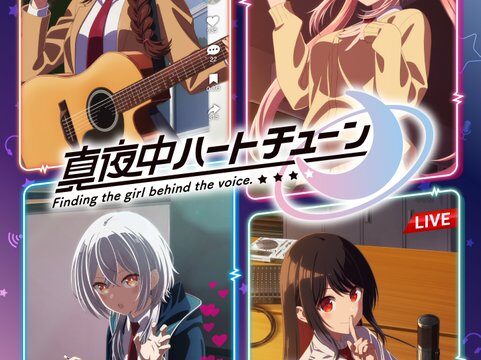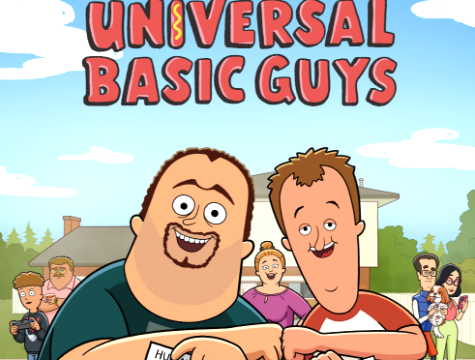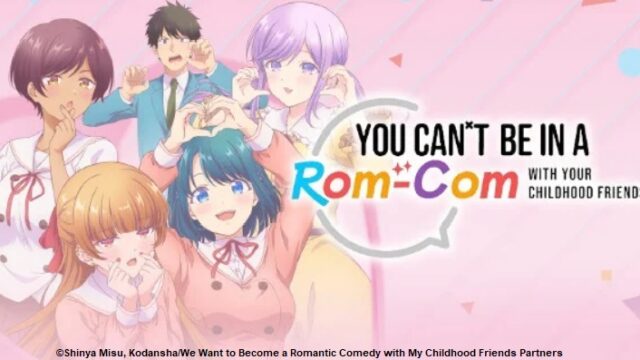Season Review: Birdgirl Season Two
Overview:
The world is full of deranged supervillains and malevolent forces, but Birdgirl is the only series where overtime requests, fiscal reports, and HR meetings are given equal weight to superhero theatrics. The corporate landscape is evidently just as stressful and complicated as any superpowered showdown. Thankfully, Judy Ken Sebben and the rest of her trusted Birdteam at Sebben & Sebben are prepared to tackle everything from workplace fatigue to world domination. In season two of Birdgirl, crime never sleeps, but neither do merger deadlines and employee reviews.
Our Take:
A lot of viewers were both skeptical and excited when Birdgirl, a spin-off to Harvey Birdman: Attorney at Law, was first announced for Adult Swim. Much of the discussion of the show’s first season became dwarfed by how different Birdgirl is from its predecessor and that it’s hardly the cornucopia of cartoon cameos that fueled the original courtroom drama comedy. Now, in season two, Birdgirl is hardly a different series, but it’s been able to properly move out of Harvey Birdman’s shadow that loomed over its first six episodes. A better understanding of Birdgirl’s agenda and style of comedy only does favors for the series. Accordingly, season two of Birdgirl isn’t markedly dissimilar than its freshman year, but it feels like a more natural and fully-formed version of itself that’s free to do its own thing.The trial and error quality that’s present during the first few episodes of season one is absent this time around. Birdgirl understands that the most effective structure for its storytelling is when Judy has to police some new piece of zany Sebben & Sebben tech. There’s a lot of mileage in this recurring premise, but it’s also inherently repetitive on some level. The scripts for season two are generally better than the previous crop and are full of entertaining asides that succeed even when the broader structure of the episode stumbles.
These general improvements are naturally helpful, but there’s nothing in the show’s second season that’s quite at the same level of season one’s “Topple the Popple” or “Thirdgirl,” but there’s generally a more consistent quality across the season with less cratering dips between satisfying installments. Season two episodes like “The Wanky,” “Fli on Your Own Supply,” and “With A K” establish encouraging standards for the series and they all bring something new to the table, either tonally or through characterization.
On the topic of character development, season two of Birdgirl builds upon the momentum of its first season finale and the whole Birdteam feels properly fleshed out and more cohesive. The first season could seriously suffer from Birdgirl being the show’s only compelling character. This isn’t as egregious in season two, but there’s still plenty of dead weight in the show’s cast, like Evie and Paul. Other characters, Gillian, also feel like their strongest stories were back in season one. There’s infectious chemistry when the whole Birdteam is together, but Birdgirl could definitely cull some of the characters, introduce flesh blood, and curate more interesting character dynamics. One of the standout guest characters from this season, Kaptain Khaos, would be the perfect figure to get a promotion to the main cast and further frazzle Birdgirl. If nothing else, he’s a satisfying adversary to add to Birdgirl’s nonexistent rogues’ gallery.
It’s likely that most audiences are tuning into Birdgirl for its sharp writing and fast-paced dialogue, but the series’ low-key secret weapon remains the ambitious visual flourishes that punctuate each episode. Every installment of Birdgirl finds opportunities through flashbacks or character digressions where unique animation aesthetics–whether it’s anime, pop art, Silver Age comic books–filter personal moments through creative disruptions. These innovative bursts don’t always feel justified, but they’re arguably the most distinct trademark of the series at this point. There are likely to be diminishing returns in this area as Birdgirl dips its toe into more diverse animation styles, but as it stands it’s always a welcome element.
Season two of Birdgirl is hardly a step backwards, but after two seasons it’s easier to get a more accurate representation of this series’ goals and where it’s headed. Birdgirl is a lot of fun, but it also wouldn’t be the end of the world if this turns out to be the end of its run. It’s entertaining, but it hasn’t reached the heights of appointment television like Adult Swim’s past classics. Birdgirl remains perfectly serviceable in the moment, but it’s rather forgettable once it’s over. After twelve episodes, the show has been given enough of a chance to prove itself.
This isn’t to say that a third season couldn’t improve upon these issues and continue to grow, but Birdgirl also feels limited in its scope and the potential places that it can go. Adult Swim’s original animated slate continues to get slashed, which puts an even greater emphasis on Birdgirl as the voice of the network’s future. Doubling down on more Birdgirl isn’t necessarily the best decision for Adult Swim, but it’s at least a brand that aligns with the subversive programming block.
Those that weren’t fans of season one of Birdgirl aren’t likely to be won over by these new episodes, but those that enjoyed the first season won’t be disappointed with the small series’ growth. Birdgirl remains an oddity that’s very different in tone and execution from the flagship Adult Swim series, Harvey Birdman: Attorney at Law, which spawned it in the first place. This pivot isn’t for everyone, but if nothing else it manages to do the original series justice and doesn’t sully the Birdman name through its heightened criticisms of corporate culture.















There's got to be some kind of twist that's going to happen with this. I don't know if they're setting up an April Fool's joke now or what's going on, but it seems too strange that they'd suddenly reverse on doing a fourth and fifth season after the show was already renewed and they were even just talking about working on those seasons like a couple months ago or something. Or maybe the two episodes yet to release will secretly somehow each be like a "season" in themselves?